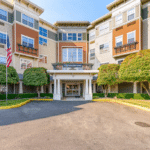 There are a lot of resources for seniors. Knowing what’s available and appropriate for their needs is often hard to determine. You can always call Right Fit Senior Living Solutions if you have questions, we will refer you to resources who meet our high standards. Here are a few options for seniors who are starting to need a little assistance through full care:
There are a lot of resources for seniors. Knowing what’s available and appropriate for their needs is often hard to determine. You can always call Right Fit Senior Living Solutions if you have questions, we will refer you to resources who meet our high standards. Here are a few options for seniors who are starting to need a little assistance through full care:
Private Care Givers: Private caregivers often seem like the least expensive option for helping seniors who need care but want to keep the costs down. A few words of caution about private caregivers. First, make sure they have a national background check. There are a lot of predators who will take advantage of seniors, know who you are hiring. Second, private caregivers are just like Nannies – seniors or their families will have to pay “Nanny taxes” for their services. Misclassifying an employee as an “independent contractor” (using Form 1099) is considered tax evasion.
In Home Care: In Home Care is non-medical care by caregivers who have extensive training but are usually not certified by the state. The caregivers can do everything from providing companionship, helping with meals, shopping and light house cleaning to more personal care like showering, helping in the bathroom, dressing etc. In Home Care is usually paid by the individual although Medicaid will also pay if the client is approved for services. There is usually a 3-5-hour minimum visit (depending on in home caregiver agency). The client and the agency determine together what services are needed, frequency and length of visits. Agencies manage the caregivers so if one is not able to come the agency will find a substitute. If the client doesn’t like the caregiver the agency will find one that better suits the client’s needs. Agencies do background checks to ensure the caregivers are qualified and pay the taxes (mentioned above) so families are not responsible for them.
Home Health: Home Health is for individuals who need help from medical professionals in their home. The team consists of a nurse, physical therapist, occupational therapist, speech therapist and an aide. Each patient is evaluated for their needs and the health care professional will visit the patient at home to help improve the patient’s health. This is usually a short-term program and ends when the patient has met his/her goals or their progress plateaus. This is a Medicare benefit so patients do not have to pay for their services.
Independent Living: Independent Living provides a private room, usually 3 meals a day (some communities provide a meal allowance or a set number of meals per month), regular housekeeping, cable TV, all utilities, activities, transportation to stores and doctors and socialization. Rooms usually have full kitchens. This is a perfect choice for a senior who is still active and doesn’t need any personal care help but may be isolated at home and wants to be around people or is tired of cooking and home maintenance.
A big distinction between independent and assisted is that in independent living if a resident falls the staff will come to them and will call 911 for help. Staff in independent living are not licensed or trained to help people up from a fall.
Assisted Living: Assisted Living includes everything in Independent Living (although the kitchen is a refrigerator and microwave only) but also provides access to a nurse, caregivers and med aides 24×7. This is an ideal option for somebody who needs help with medication management and personal care. Caregivers can help with everything from putting on compression socks, helping with medications and dressing to showering, helping in the bathroom, escorting to meals and arranging doctor appointments. Assisted living communities can usually provide care through end of life although some may not be able to do very high levels of care such as Hoyer Lifts or help insulin dependent diabetics.
Memory Care: A resident in Memory Care must have a dementia diagnosis. Seniors with this diagnosis wouldn’t be safe behind closed doors and wouldn’t know to press a button or pull a call cord if help is needed. It’s also for residents who may be “exit seeking” or “elopement” risks (they see a door and go out, potentially wandering away and getting lost) and those who need a lot more personal care and attention than they would get in assisted living. The doors in memory care are locked so residents are safe inside and can’t get out and get lost. There are courtyards for residents to get outside and often caregivers will take residents for walks or outings. The ratio of caregivers to residents is smaller and activities are designed for those with cognitive impairment.
 Adult Care Homes: Adult Care Homes are ideal for seniors who need a lot of personal care and don’t care about or need the social aspects of assisted living. The homes are privately owned and operated. Only five senior residents live in the home so residents get a lot of attention, care and love. Somebody is in the house 24×7 to ensure the residents always have somebody to help. Because the proprietors of adult care homes are with the residents all the time they notice small changes and can proactively seek medical help often avoiding hospitalizations. There are three levels of adult care homes, most are level 2 or 3. A level 3 care home can have a resident who are dependent” in four or more “Activities of Daily Living” (there are six basic ADLs: eating, bathing, dressing, toileting, transferring (walking) and continence). Adult care homes can provide very high levels of care through end of life in a home setting with a lot of expertise, compassion and love.
Adult Care Homes: Adult Care Homes are ideal for seniors who need a lot of personal care and don’t care about or need the social aspects of assisted living. The homes are privately owned and operated. Only five senior residents live in the home so residents get a lot of attention, care and love. Somebody is in the house 24×7 to ensure the residents always have somebody to help. Because the proprietors of adult care homes are with the residents all the time they notice small changes and can proactively seek medical help often avoiding hospitalizations. There are three levels of adult care homes, most are level 2 or 3. A level 3 care home can have a resident who are dependent” in four or more “Activities of Daily Living” (there are six basic ADLs: eating, bathing, dressing, toileting, transferring (walking) and continence). Adult care homes can provide very high levels of care through end of life in a home setting with a lot of expertise, compassion and love.
Nursing Homes: Nursing homes provide very high levels of care by certified medical professionals. There are doctors, RNs, MSWs, CNAs all available to help residents with all aspects of care. Nursing homes are very expensive ($350-450/day). Often residents are encouraged to look into adult care homes as a less expensive option for getting their care needs met.
As you can see there are a lot of resources for seniors and knowing which is appropriate is hard to determine. Right Fit Senior Living Solution elder care advisors can help develop a plan for short term through long term options considering senior’s needs, budgets and desired location. We help make what is very overwhelming much more manageable.









